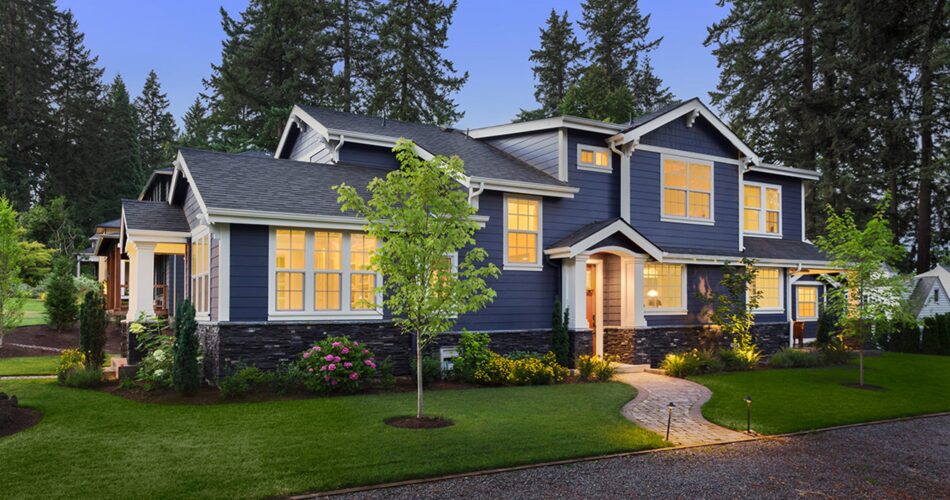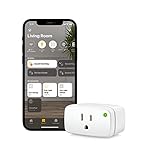
Smart home gear isn’t just for showing off to friends and automating your life. It’s also really handy for making your home look occupied when you’re away. Here’s how to use your smart home gear to fool burglars.
Can You Really Fool Burglars With Smart Home Gear?
Before we dive into all the clever ways you can use smart home gear to mimic a human presence in your home, it does beg the question: does mimicking a human presence in the home actually deter criminal activity?
If the criminal activity you’re trying to deter is an Oceans 11-style heist on your home or the criminal in question is a foreign agent hell-bent on assassinating you, then no, you’re going to need more than a few hundred dollars worth of smart home gear to deter that—and you should probably spend that few hundred bucks on a ticket out of town.
But for the run-of-the-mill crime of opportunity, the illusion that somebody is home is an excellent deterrent. The vast majority of thieves are not living life like every day is The Purge, they just want to want a fast and easy way to get stuff from your house to flip for cash. An occupied home throws a wrench in the “fast and easy” part. You don’t have to make your home Fort Knox, you just have to make your home unappealing enough to send the person elsewhere.
If Kevin McCallister can fool The Wet Bandits with a stereo, some mannequins, and a cardboard cutout of Michael Jordan, we feel pretty confident with far more advanced gear, you can fool a junkie looking to steal your Xbox.
Combine presence mimicking with a good home security system, and you’ll have all your bases covered.
How to Mimic Occupancy With Smart Home Gear
Maybe you’re on vacation for a week. Maybe you work second shift and want your home to look occupied in the evening, especially during the winter when it gets dark so early.
Whatever your motivation, the crux of the illusion is harnessing your smart home gear to do the things you’d do if you were home. Empty homes are eerily quiet and still. Occupied homes are bustling with light and sound.
A quick note before we dig in. You can use many of the suggestions below by using features included with a particular smart home platform or device, with your smart home platform of choice, or both.
So if a particular feature isn’t included in the device’s control app, consider using a smart home routine with your greater smart home platform like Google Assistant or Alexa. (And if you’re running an advanced smart home platform like Home Assistant, the sky is the limit.)
Simulate Occupancy with Smart Lights
Switching lights on and off to create the appearance of someone at home isn’t a new trick by any means. People have been doing it with basic light timers for decades. And while you can do the same thing with mechanical timers or even smart plugs, actual smart bulbs take it to a different level.
The Philips Hue platform, for example, has a vacation mode that doesn’t just flip certain lights on for a set amount of time; it actually mimics the presence of someone in the home.
Tell it to mimic you between, say, 5 PM and your usual bedtime of 11 PM, and during that window, it will turn lights on and off throughout your home as if you were moving from room to room. With one or more Hue bulbs in different rooms, it’s uncannily good.
When I return from trips, my neighbors almost always comment that they had no idea I was gone because the house looked occupied. Sometimes even my immediate neighbors, who knew I was out of town, will say they thought I got home early.
Even without Hue bulbs, you can likely recreate the effect by using a similar vacation mode in your smart light platform of choice—even inexpensive Wyze smart bulbs have a vacation mode—by setting random timers or by using an away mode if your greater smart home platform supports it. As part of the Alexa Guard functionality, Alexa supports vacation mode lighting, for example.
Mimic TV Watching with Smart Bulb “Party” Modes
Turning lights on and off can make it look like somebody is home, but nothing says “this home is occupied,” like the familiar flicker of a television set. Back in the day, it used to be simple to put an appliance timer on your TV to turn the TV on and off because TVs had mechanical switches. But timers don’t work on modern TVs because plugging and unplugging them doesn’t turn them on.
While you can buy specialty devices that mimic TV light if you have smart bulbs or LED strips, you can use those just as easily and without investing in specialty hardware.
For example, I have a Govee-brand adaptive TV light setup. When I’m actually watching TV it illuminates the wall behind the TV, but it also has a bunch of other features like holiday scenes, color animations, and so on.
If you turn the brightness up all the way and pick one of the colorful and active scenes, it looks pretty much like you’re watching TV. The Halloween and storm themes that include rapid flashes do a great job capturing the feeling of an action movie with explosions too.
You can recreate the effect with any color-changing smart bulbs or light strips with similar “party” or random mode, though. Experiment with them until you find a combination with that familiar TV-flickering-in-the-night color scheme.
Use Music and Podcasts to Create Lived-In Ambiance
Like lighting, sound is a strong indicator that somebody is home. Combine it with scheduled lighting and the TV illusion above, and it’ll look like a full house.
If you want to automate things but keep it, relatively, simple one of the easiest ways to do so is to plug a radio into a smart plug, tune the radio to a station that features primarily talking (your local public radio station is great for this) and set a smart schedule to turn the radio while you’re away.
If you already have smart speakers sprinkled throughout your home, then it’s trivial to incorporate audio playback into routines. You can, for example, instruct a Google Home routine to start a podcast, Spotify playlist, or other music sources.
Given the sheer number of podcasts out there that amount to “two dudes sitting around talking about random stuff” (shoutout to Josh and Chuck at Stuff You Should Know) it should be pretty easy to find something to play that sounds a lot like people hanging out in your house talking about video game trivia or the history of vampire panics.
Mix all these tips together and nobody—burglars, included—will be able to tell when you’re home, at work, or on vacation.
Source link









